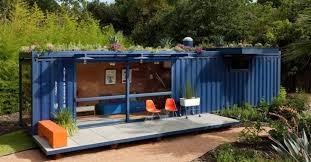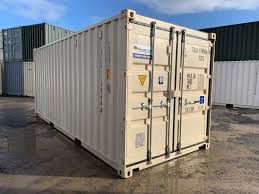At an average population growth rate of 2.5 percent annually, Nigeria has one of the fastest-growing populations globally. The country’s population is projected to rise to 400 million by 2050, potentially making Nigeria the third most populous country, trailing only China and India. For many Nigerians, access to decent and affordable housing remains a critical challenge.
The housing challenge is especially exacerbated by the rise in rural-urban migration, which continues to stretch the limited public infrastructure in urban centers. The depth of the challenge is already quite clear; according to the International Human Rights Commission (IHRC), more than 28 million Nigerians lack access to decent and affordable housing. This figure aligns with estimates from the Federal Mortgage Bank of Nigeria (FMBN), which projects that Nigeria requires at least 28 million housing units to close the housing gap.
However, one innovative way to reduce the cost of housing is to build using containers. This method is becoming increasingly popular and has the potential to revolutionize the way we build homes in Nigeria. Repurposing shipping containers creates unique and affordable homes. These containers are durable, cost-effective, and can be customized to fit various needs. They can be transformed into cozy living spaces, offices, or even commercial buildings. Plus, they’re eco-friendly, as they repurpose existing materials.

Container housing is a flexible solution that can be customized to meet individual needs. These containers can be stacked, connected, or even modified to create spacious and modern homes. The modular nature of container housing also allows for easy expansion or relocation if needed.
This new approach to affordable and sustainable homes in Nigeria come with many benefits ;
1. Affordability: One of the major advantages of using shipping containers for housing is their cost-effectiveness. Compared to traditional construction methods, repurposing containers can be significantly cheaper. This makes it an attractive option for individuals or families on a budget.
2. Durability: Shipping containers are designed to withstand harsh conditions during transportation, making them incredibly durable. They are made of steel, which can be treated to resist rust and corrosion. This means that container homes can withstand extreme weather conditions, making them suitable for various locations in Nigeria.
3. Customization: Another great aspect of container homes is the ability to customize them according to your needs and preferences. With some creativity and proper planning, you can transform a container into a comfortable living space. You can add windows, doors, insulation, plumbing, and electrical systems to make it feel like a traditional home.

4. Mobility: Container homes offer the advantage of mobility, unlike traditional houses. If you need to relocate, you can easily transport your container home to a new location. This flexibility can be beneficial for individuals who have temporary housing needs or prefer a more nomadic lifestyle.
5. Eco-Friendly: Repurposing shipping containers helps reduce waste and contributes to a more sustainable approach to housing. By giving these containers a new purpose, you are essentially recycling and reusing materials. Additionally, container homes can be designed to be energy-efficient, incorporating renewable energy sources such as solar panels.
6. Construction Time: Container homes can be constructed relatively quickly compared to traditional homes. Since the basic structure is already in place, the construction process is streamlined. This allows you to move into your new home sooner and avoid lengthy construction periods.
While there are many benefits to container homes, it’s important to consider some challenges as well. Insulation and ventilation can be concerns, as containers are not naturally designed for living spaces. Proper insulation and ventilation systems need to be installed to ensure comfort and air quality. Additionally, obtaining permits and dealing with zoning regulations can be a hurdle, so it’s essential to research and comply with local regulations.
Sources
- https://www.thecable.ng/addressing-the-housing-deficit-in-nigeria/amp/
- https://listproperty.ng/innovative-housing-in-nigeria-building-a-house-with-containers/#google_vignette




